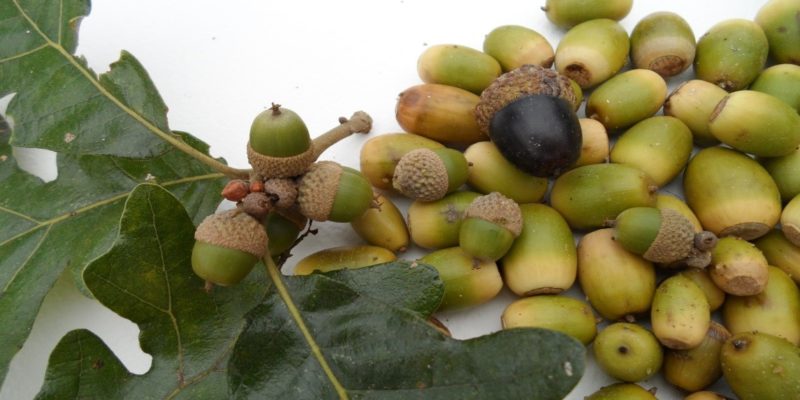
Take a peek outdoors within your own backyards, or within your local parks. You will no doubt find the broad spreading tree of the family Fagaceae, the hearty species of the Quercus. The Quercus trees are better known as the great oaks. For example; the “White Oak,” the “Scarlet Oak,” the Shingle Oak,” and the “Black Oak” trees. Oak trees are very abundant, and the best aspect of an oak tree beside their majestic beauty is their edible fruit. All Oak trees produce the fruit of an Acorn. Acorns come in many sizes depending on the Quercus species, but, they are all edible. Most Oak trees will produce thousands of pounds of fruit annually. It is a giving that just keeps on giving.
Americans have traded the gathering of healthy natural foods for the convenience of the supermarkets to fill their food pantries. But, in the past, Americans of all walks had harvested the wonderful bounty of the Acorn Nut. In Fact, The South Korean peoples have enjoyed the “healthy nut” bounty for thousands of years and are still enjoying it today. Throughout time, the Acorn has served humans as flour for baking bread, cakes, and cookies. Today, it is crafted into a delicious jelly in South Korea. Acorns can be processed into milk, just like almonds are. Wherever flour is used in the kitchen, the Acorn flour is a great substitute and a very healthy one.
The process of collecting Acorns can be a great family connection event, just like in the past. The preparation of Acorns presents some great opportunities for food experimentation, and will also fill the pantries and refrigerators with a free, natural and healthy food choice. Acorns, just like every other natural tree seed, contains a toxin that must be removed before eating. Removing the toxins is an easy process. If you have a cool running stream, bag the Acorns up and let them soak for a couple weeks, If you do not have a stream, use a 5-gallon bucket, but be sure to agitate the water often and change the water frequently until that brown stain in the water becomes clear. Experimentation with the Acorn can lead to some very interesting and natural food dishes. The Acorn is cost-effective, nutritious, and a great alternative to processed foods from the grocery stores. October and November are the prime bounty months for harvesting Acorns. After that, the squirrels will want to fight you for them.

